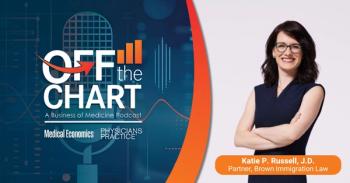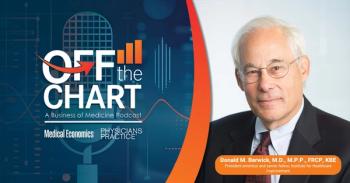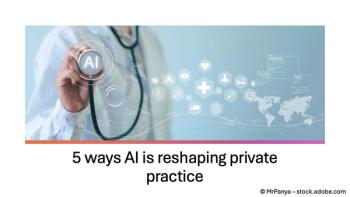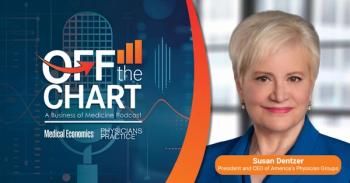
Clinton Offers Hopeful Message about Health IT Potential at HIMSS13
President Bill Clinton discussed the current state and future of healthcare in the U.S., including the role of health IT, at his keynote speech at HIMSS13.
President Bill Clinton delivered a swooping, sagacious keynote speech at the HIMSS13 Conference in New Orleans that touched on everything from the lessons learned during his presidency to why technology holds the key to a brighter future for healthcare in America.
Clinton's demeanor was nostalgic and affable throughout his talk, which he kicked off by stressing that while healthcare legislation such as the Affordable Care Act that supports technology is a step in the right direction, personal responsibility is key.
"The political, social, and healthcare impacts of the Affordable Care Act have yet to be fully determined because it all depends on how it's implemented … and the healthcare decisions we all make are outside of the scope of the [law]," Clinton told a ballroom so packed that two overflow rooms were created and filled so that attendees could watch him speak.
One of the ways Clinton has exercised personal responsibility for improving healthcare outcomes is through his eponymous William J. Clinton Foundation and taking on global health issues. Years ago, after securing $20 million per year in grants to buy AIDs medicine for high-risk patients in poor countries, Clinton said his foundation was able to work with major drug producers to go from a high-price, low-volume business to a high-volume, low-price business.
In addition to taking responsibility for global healthcare issues (and personal healthcare issues such as obesity), Americans need to be willing to adjust to new spending habits from time to time, he said.
"Almost every nation gets long in the tooth," said Clinton. "There are huge transactional costs to doing things the way you've always been doing them."
The shift in attitudes about spending smartly represents a shift from the late 1970s, when "there was an attitude of 'spend whatever you want,'" said Clinton, noting that he balanced the budget four times during his two terms as president. The inference to Medicare, a program that used to be based on blanket compensation for medical services to seniors but had very little oversight, was not lost.
But putting money into the private sector and taking it away from the public sector could have a negative effect on those Medicare-age seniors who need care most, said Clinton.
"The real people affected are being asked to move from a less-expensive system to a more-expensive system," he said. "In this maelstrom … healthcare information technology will become very important."
Clinton also told a story about how he sought to reduce childhood obesity by sitting down with the beverage industry and discussing possible solutions that would allow it to make money by selling healthier alternatives.
But the whole audience erupted in laughter when he accidentally said "drugs" instead of "drinks" when he stated, "there has to be a way to sell drugs, uh, drinks in school and still make money" (though he recovered with "some people think sugar is a drug"). Still, by working with these drink manufacturers, there has been a 90 percent reduction in the amount of calories consumed by children in certain parts of the country, he said.
When Clinton finally discussed the pink elephant in the room, the sequester-coated economy, he did so by cautioning against federal austerity.
"You gotta have a certain amount of economic growth," said Clinton. "No country, in my opinion, can sustain a healthy economy … [without spending]."
He also offered examples of where investing money in healthcare technology and research, such as the $3 billion he spent on the human-genome research, has yielded "tens of millions of dollars in economic activity."
Perhaps the best part of Clinton's speech was his musings on technology's futuristic devices and gadgets, many of which seem only possible in a Star Trek-like era.
"It won't be long before people can get physical exams just by going into a canister and getting scanned," said Clinton. "The whole promise of information technology is that we can manage data in ways we never have before so we know what the heck we're doing."
Newsletter
Optimize your practice with the Physicians Practice newsletter, offering management pearls, leadership tips, and business strategies tailored for practice administrators and physicians of any specialty.






